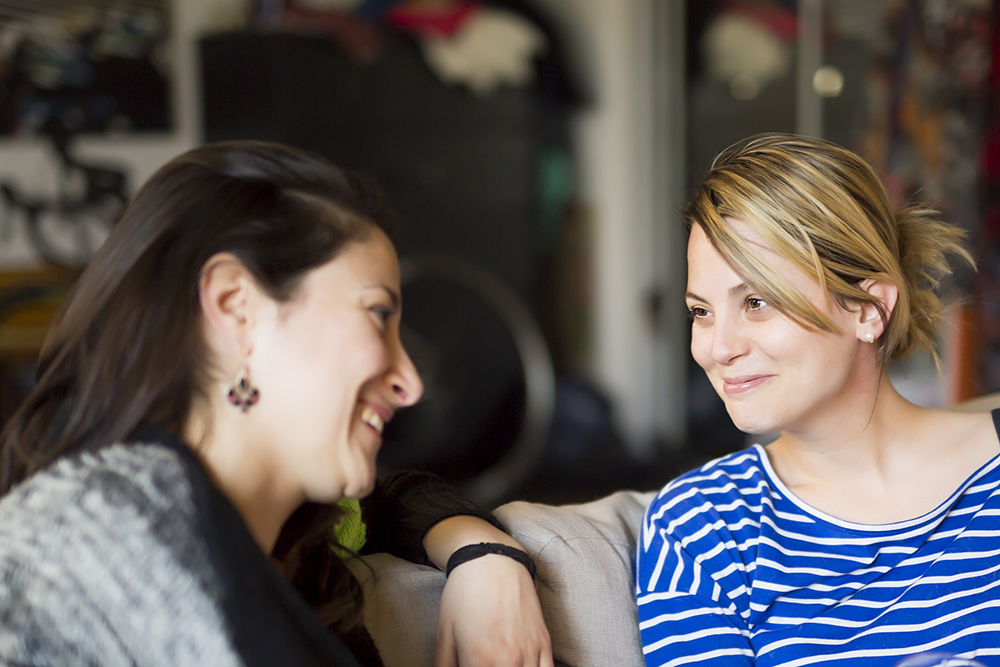 Talking is a form of communication, a tool people use to share information, invite others into their story, and give information. When people enter recovery, they often seek others who share the same type of situation (addiction, detox, recovery challenges) but are not always good listeners. Some listen too much and don’t like to share. There is a balance to strike. When someone actively listens to another share their story, it helps the person with addiction build rapport with others, but also helps them learn how to navigate the real world at work or in personal relationships in order to be successful. There are some key points to consider when thinking about how to listen better and more constructively to people in treatment and recovery.
Talking is a form of communication, a tool people use to share information, invite others into their story, and give information. When people enter recovery, they often seek others who share the same type of situation (addiction, detox, recovery challenges) but are not always good listeners. Some listen too much and don’t like to share. There is a balance to strike. When someone actively listens to another share their story, it helps the person with addiction build rapport with others, but also helps them learn how to navigate the real world at work or in personal relationships in order to be successful. There are some key points to consider when thinking about how to listen better and more constructively to people in treatment and recovery.
Listening Authentically
Many people think if they are not talking, they are listening. In actuality, people may be making lists in their brains, thinking through things they need to get done, or maybe planning what to say next in response to the person talking. With different ways to listen, each will help the listener achieve a different objective. Here are the different types of listening people may experience:
- Sensory: hold awareness of the body language of the speaker and what message they are trying to convey. This will tell what is happening in the moment and become more apparent over time. The listener will be able to understand what is being said better this way as people give clues to what they’re talking about through their body
- Evaluation: listening to evaluate and critically think about what is being said. This requires a lot of effort and focus by the listener because it usually means they are trying to make a decision based on what they are saying
- Listening with appreciation: when someone listens to gain an appreciation for something like music or to gain something from the experience
- Empathetic: listening with a desire to understand their point of view. This type of listening helps build trust and rapport with people and is used most by therapists but everyone can learn how to use it in relationships
Why Listening Matters
In treatment, it seems like a lot of talking is done but it becomes hard to listen to others talk about themselves when individual problems seem so serious. When people listen, they discover more about their world. Listening is helpful because it is a reminder of where the person is and how far they have come. Even if they can change their life just a little by listening, they might discover new insights they never knew.
Why It’s Hard Work
It is seemingly more interesting for humans to talk than to listen. By nature, humans love to share information by talking. It is one of the key ways information is passed one person to another. Listening tells others they care and is a great benefit in recovery. One of the risks of not listening is that people become more internalized about their stories and forget other people struggle, too. They may come across as self-absorbed and not as engaging to be around.
Become a Listener
In treatment and recovery, listening is a skill everyone can work on and grow into. Think of it as a way to take in what others say without waiting to respond. Listening is difficult with distractions, so most group meetings are set up to avoid distractions. An office environment in therapy is set up or calm and peace, to help avoid distraction. People like to multitask but it is important to listen well to the other person. Allow time for a considerate response and show what they have to say matters. This will come in very handy when dealing with people at work or in relationships outside recovery.
The Guest House Ocala helps you gain tools you need in recovery, like sharing your story and listening well to others. We will help you bridge the gap from addiction to recovery and beyond. Call us to find out how to get started: 1-855-483-7800